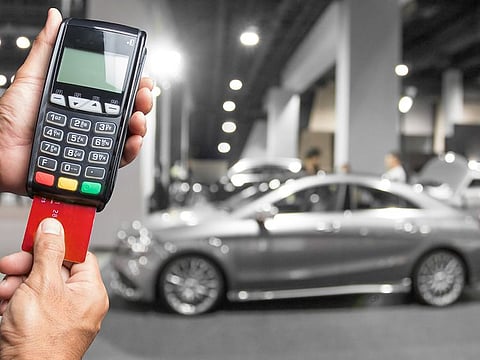5 mistakes credit-dependant people should avoid right now
Credit may seem like an easy option to stay afloat when on a tight budget, but not always

When times are tough, credit card debt may be inevitable if you're learning to manage credit or are forced to make risky financial decisions due to hardships.
For Lydia Senn and her husband, this was their reality in 2008 when lost her job and he took a pay cut. They relied on credit cards to get by and accumulated over Dh50,000 in debt.
"We got our debt paid off in 2014 and we decided to just do a no-credit card lifestyle up until 2019," says Senn, who documents her financial journey on her YouTube channel. "We don't want to rack up high-interest debt, so we're very strategic and intentional with how we use our credit card."
Having a plan may help you avoid debt or keep it manageable when money is tight. If your circumstances allow it, consider alternatives before making credit card mistakes that make it difficult to bounce back.
1. Don't keep spending as usual
Change your budget if circumstances are jeopardising it. Senn frequently adjusts her budget to include the varying charges of fuel, and internet and cell phone bills on her credit card.
"Look at the budget and take a hard look at those needs versus wants," says Katie Bossler, quality assurance specialist at a US-based credit counseling agency.
To balance fluctuations in costs, she scaled back in other areas and opted for alternatives. The family now dines out and travels less, and the kids are attending a less expensive arts camp.
As you're reviewing your credit card statement, consider cutting out unnecessary purchases or unused subscriptions. Prioritise essentials like rent, utilities, food and expenses that help bring in income. If you're still stretched financially after making changes, consider other options like part-time work, or getting roommates, says Bossler.
2. Avoid relying on credit card limit
Trimming your budget may offer opportunities to save that prevent you from relying on credit cards. Save what you can - even just around Dh20 per week. An emergency fund is foolproof, but a credit limit can eventually max out or get slashed at the issuer's discretion.
Before that happens, request a higher credit limit from issuers when accounts are in good standing. This way, you have some credit available as a last-resort option that supplements an emergency fund. Note, an issuer may run a 'hard inquiry' on your credit after making this request, an action that can temporarily drop credit scores.
3. Don't carry a balance on high-interest credit card
Carrying a large balance on a high-interest credit card makes purchases more expensive. For credit card accounts assessed interest in 2021, the average rate was 16.45 per cent, according to data. Some credit card interest rates run even higher at 29.99 per cent.
While a card's interest rate depends on economic factors and your credit, some cards or institutions offer lower rates that may save money on ongoing balances.
If you need a debt payoff strategy, a good credit score (a score of 690 or higher) may qualify you for a balance transfer credit card that allows you to move a high-interest balance onto a new card at a lower rate. Weigh the cost of the balance transfer fee and the ongoing interest charges to identify the best option.
The ideal balance transfer card has no annual fee, a low balance transfer fee of 3 per cent or less, and a long enough zero per cent introductory interest rate period to make progress on debt.
4. Stop racking up late fees
If you foresee a late payment, contact your credit card issuer quickly. A late fee can cost up to $30 (Dh110) the first time and up to $41 (Dh150) after, according to a 2022 statistic.
Some issuers may be able to change your due date, refer you to a credit counseling agency that provides a debt management plan, according to Bossler. These programs may waive fees or lower interest rates for a certain time frame.
5. Think twice about cash advances
A credit card cash advance conveniently provides a short-term cash loan at a bank or ATM, but it's costly. The interest on the amount of cash borrowed starts accruing immediately and fees may apply.
Instead, consider a personal loan or targeted offers from issuers that turn available credit on a credit card into a less pricey installment loan that puts cash in your bank account. For the latter option, there's no loan application or credit check required.







